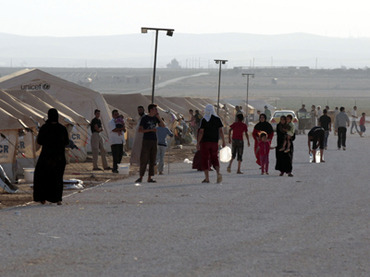The eighteenth annual World Water Day offers the same old problems and rejects the practical solutions. On March 22 one billion people will, as usual, spend the day without clean water and a third of humanity without adequate sanitation. As usual, some three and a half million men, women and children will die from related diseases this year. Yet many NGOs and politicians still prefer ideology to ideas, spurning what the private sector delivers to the world’s poor.
Activists often claim to be defending the poor from profit-maximizing corporations. But this has more to do with dogma than reality. Given that less than 10 percent of world water management is private, it is hard to see how they can blame corporations for poor supply.
In fact, it is governments that mismanage water and misallocate it to political cronies and powerful lobbies such as farmers. The poor, in rural areas or slums, are left unconnected and unable to do much about it. Anti-privatization groups keep repeating that water should be provided by government but ignore that government has been the worst enemy of the poor.
On another tack, the World Development Movement and similar groups claim that the private sector has done little for the poor, having connected only three million people in developing countries over the past 15 years. But this figure excludes Latin America and South-East Asia where private water management – and the number of people getting water – has boomed since the 1990s. In Argentina, for example, privately-managed areas got lower water prices, more connections and a drop in infectious diseases and child deaths.
Activists have further misrepresented private supply by focusing on multinationals while ignoring the small-scale water vendors who get water to people whom governments have abandoned. In many African cities, they sell plastic water sachets to passers-by, while in Paraguay 500 aguateros supply nearly half a million people using tankers and piped water. The World Bank estimates that “in most cities in developing countries, more than half the population gets basic water service from suppliers other than the incumbent official utility.
The World Health Organization, like activists, disregards these “informal water vendors, bottled water and tankers. It refuses to consider them as “improved water sources as they are unregulated, unpredictable and allegedly incapable of serving a mass market.
But to the hundreds of millions of people who rely on them, there is nothing incapable about private water providers. For many, they are the difference between life and death.
Informal water vendors come in all shapes and sizes but they all provide water for profit. Their clients are among the poorest yet prepared to pay to protect their families from disease and to put their time to better use than searching for clean water.
The success of these private water services throughout Latin America, Africa and Asia disproves the claim that the poor are too poor to pay for water and that the private sector has no incentive to serve them. In fact, the poor often pay more for water than those in prosperous areas with “formal supplies. A World Bank survey of South American cities found that, on average, trucked water costs four to ten times more than the public network’s price. In Kibera, a Nairobi slum of about one million people, jerry-can water sells at four times the average price in Kenya.
Activists who accuse the private sector of putting profits before people should realise three things. Firstly, water vendors would stop providing water and sanitation if they did not make a profit. Secondly, governments are largely to blame for the higher prices because they constrain or outlaw private supply. Finally, people buy from vendors willingly, often with a choice of suppliers.
Water and sanitation has dramatically improved in Egypt since the 1980s, especially for rural areas. Yet lack of clean drinking water and adequate sanitation contributes to the deaths of 17,000 children each year in Egypt – 20 percent of child deaths.
The theme of this year’s World Water Day is quality, so legalising the work of water vendors should be a priority. They could then own sources, land and infrastructure, get credit and expand operations, serving more people at cheaper rates with cleaner water. It is these small-scale ventures – not empty government promises – that can quickly improve water supplies for the poor.
Caroline Boin is a Project Director at International Policy Network, London, an independent think-tank working on economic development.

